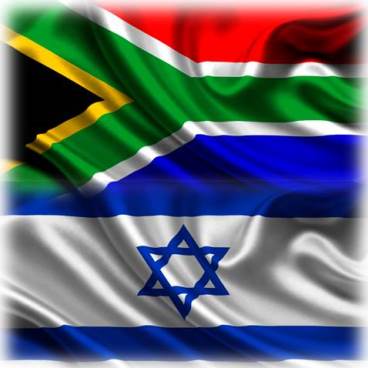
News

Deputy minister ducks and dives over downgrade
TALI FEINBERG
“South Africa will continue to use its multilateral structures to engage with Israel, and downgrading the Israeli embassy does not equate to cutting relationships,” she said. “We will still have offices in Israel, and it will have offices here. This does not lead to cutting off communication – it will be there, if requested.”
This was in response to a grilling by the Economic Freedom Fighters’ (EFF’s) NR Mashabela and Ahmed Shaik Emam of the National Freedom Party (NFP) as to what was happening with the proposed downgrade, and why there was still an Israeli embassy in South Africa.
She responded to the latter, explaining that the South African government had no control over shutting the Israeli embassy down. It was up to Israel to decide.
The Inkatha Freedom Party’s Nkhuleko Hlengwa called the downgrade “regressive diplomacy”, saying, “If you downgrade the embassy, you are contributing to instability in the region and not offering solutions.”
When questioned whether South Africa still supported a two-state solution, the deputy minister said South Africa would always support dialogue, but was against human rights violations. She said, “Those that are oppressing enjoy oppressing other people … we will always be on the side of those whose human rights are violated.”
Reverend Kenneth Meshoe of the African Christian Democratic Party demanded clarity, saying, “Some countries are known to have poor human rights records such as Saudi Arabia, Iran, China, and Sudan, and South Africa has never condemned them or withdrawn diplomatic ties.” He said that it would be in South Africa’s best interests to maintain diplomatic ties so that it could have an influence in the region and remain a credible mediator.
To this, the deputy minister replied, “The embassy is not shut down, it is open. It’s just downgraded. There is a difference between shutting down and downgrading. We still have offices there. We cannot just withdraw from other countries on the basis of one country fighting with another – we will mediate when requested.” She said that her department was training mediators, but did not answer the reverend’s questions.
Shaik Emam of the NFP said that all attempts at resolving the conflict had failed, therefore South Africa couldn’t play any meaningful role in negotiation. He said that 330 days had passed since the resolution was taken, and asked, “How soon can we have this matter resolved once and for all? Sanctions worked for South Africa: they can work for Israel.”
The deputy minister answered that her department was going through the process “step by step”. The first step had been implemented, which was “to establish people in the department to work on other steps to follow”. She said they would “take into account the time frame, the structure of the liaison office, its mandate, and its communication structure”. This report would be submitted to Cabinet, then to a portfolio committee, and Parliament.
The Democratic Alliance’s Sandy Kalyan pointed out that Israel had strong economic ties with South Africa, and queried how these would be affected by the downgrade. To this, the deputy minister responded, “We are not cutting relationships or economic ties – this is just a downgrade.”
The IFP’s Hlengwa pushed back again, saying that South Africa “cannot be both a player and a referee” and it couldn’t mediate in good faith if it had already taken sides. “A downgrade is exactly that – it’s going downwards! And it’s not in anybody’s interest,” he said to applause from the floor.
The deputy minister responded by saying, “There are no sides here,” to which the gathered MPs groaned in disbelief. But the EFF said that the downgrade was needed “to teach Israel a lesson”.
In response to the plenary session, South African Jewish Board of Deputies (SAJBD) National Director Wendy Kahn said, “There has been such conflicting messaging around the downgrade. It would be a mistake to take one statement as the definitive response. The SAJBD continues to engage with all parties involved in this issue, encouraging engagement in the interests of peace-building.”




